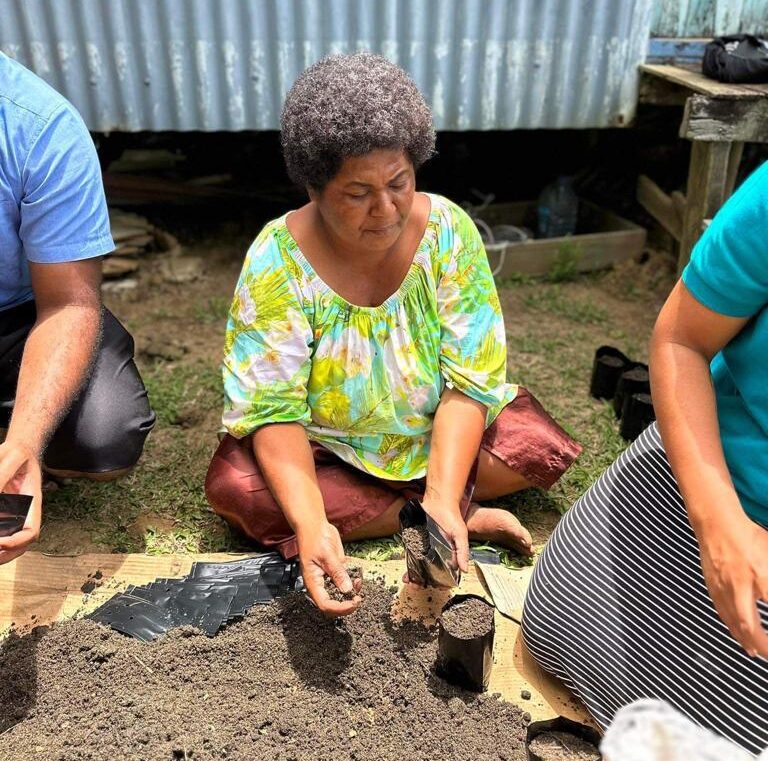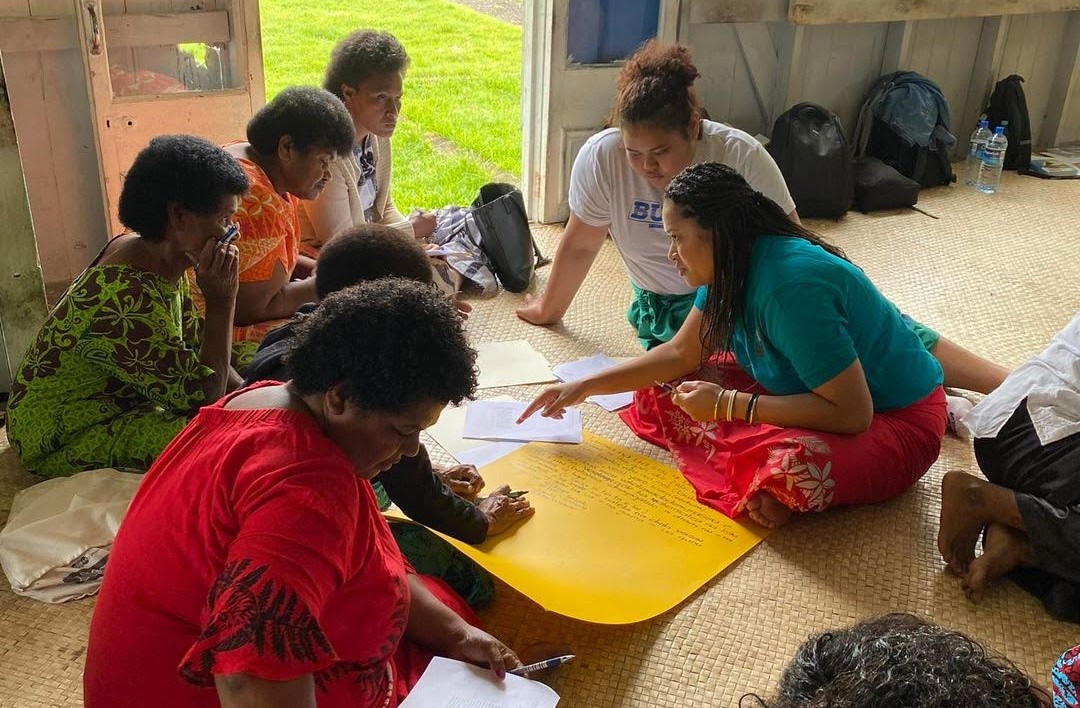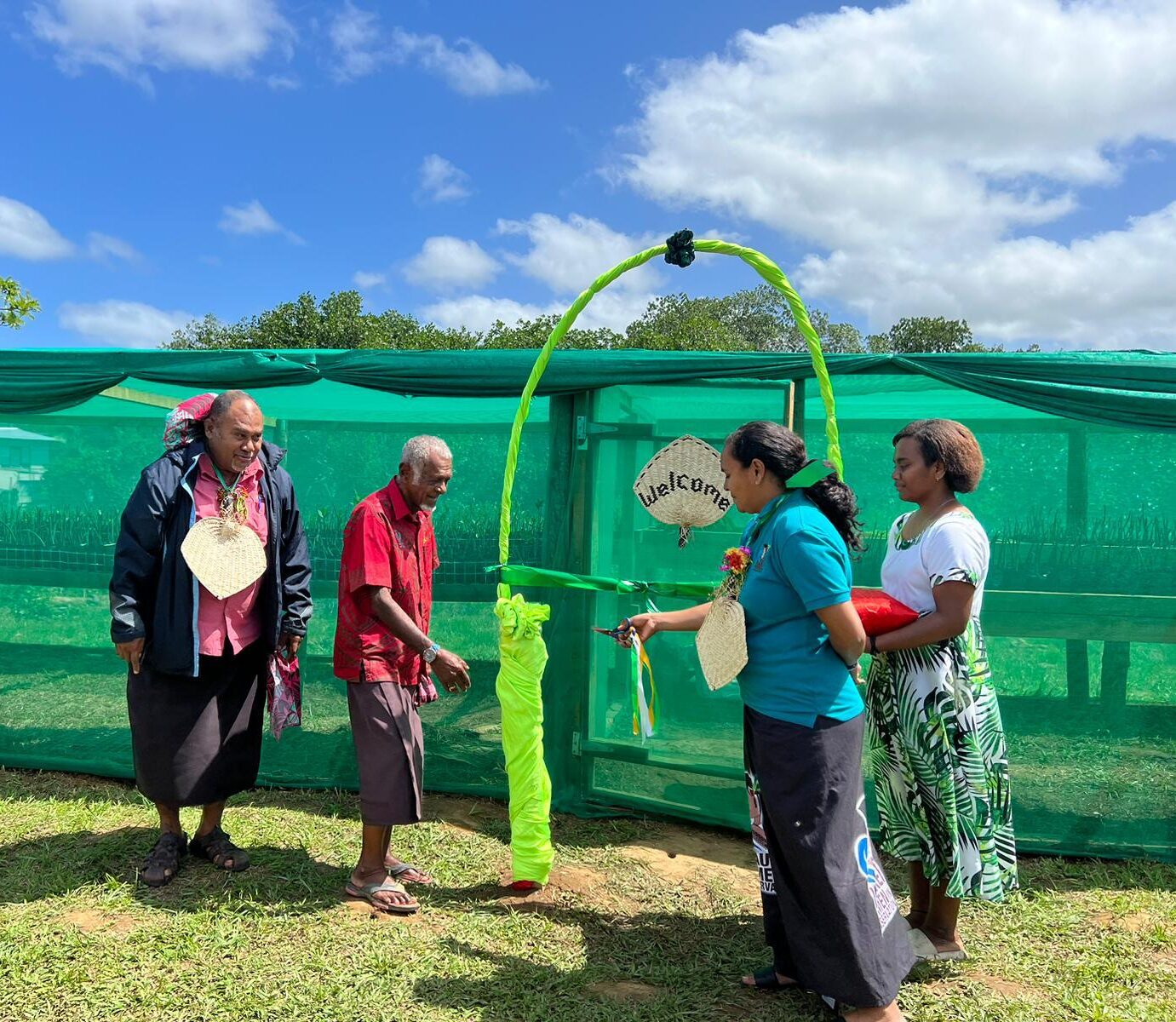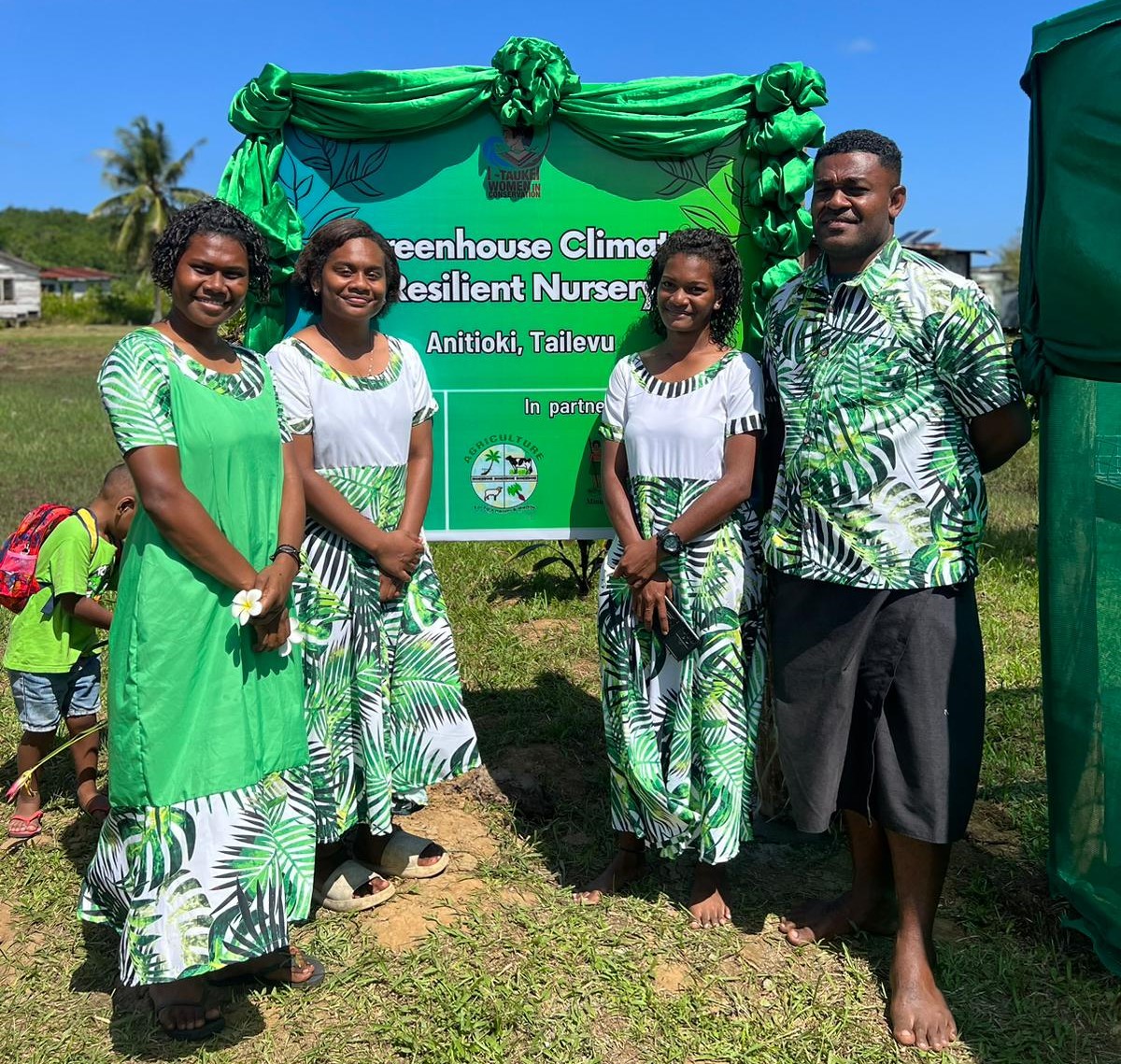Article by Davila Talemaimaleya, Learning Coordinator for the Pacific Islands Advisory Board

Indigenous women in Fiji play a multifaceted and vital role in addressing the impacts of climate change, reflecting their profound connection to land, ocean, culture, and traditional knowledge, as well as their fundamental role within Indigenous communities. Because of this, it is important that environmental justice grantmakers like Global Greengrants Fund support work that builds the leadership and power of Indigenous Fijian women. Nurturing this work at the intersection of gender and the environment nurtures the resilience of Indigenous Fijian communities as a whole.

The community of Anitioki, located in Daku, Tailevu, Fiji, encounters many environmental challenges as a result of global climate change, such as sea level rise, coastal erosion, and saltwater inundation, which disrupts the timely bearing of fruits and crops. These challenges have impacted the resilience of local Indigenous communities in the face of continued climate change impacts and threatened traditional knowledge and agricultural practices and biodiversity that local Indigenous communities have safeguarded for centuries. These impacts are compounded for women, who also face the impacts of gendered oppression. Using a grant from Global Greengrants Fund, iTaukei Women in Conservation (iTWC), however, an Indigenous Fijian women and youth-led group, was able to successfully establish a greenhouse climate-resilient nursery to address the challenges faced by Anitioki community members. The greenhouse nursery aids in supplying vegetables and plants to the community, creating sustainable long-term benefits.

It also provides an avenue to protect and preserve Indigenous trees, which are under threat due to climate change. While building the greenhouse, iTWC prioritized blue and green carbon crops that sequester carbon dioxide from the atmosphere. Blue carbon crops focus on marine plants such as nursing mangrove seedlings, while green carbon crops focus on land-based plants such as sandalwood, avocado, cabbage, and eggplant. These help to ensure that the greenhouse not only provides food and necessary supplies to the local community but contributes to a global reduction in carbon in the atmosphere. According to the President of iTWC, Alumita Sekinairai, the “nursery provides a source of income and livelihood for the community through planting native trees, fruit trees, vegetables, and mangroves that protect their vibrant community.” Through the project, community members have developed skills in sustainable forestry management, seed collection, soil collection, soil mixing, potting, and nursery management, which will help them to maintain the nursery long-term. The project also motivated and empowered Indigenous women and youth to take the lead during the handover of the climate-resilient nursery. The project increased sharing opportunities for education programs and created greater access to relevant events for women and youth.

The funding from Global Greengrants has not only enriched the Anitioki settlement economically, environmentally, and socially, but also created a sustainable legacy for future generations, one that is stewarded by women and youth who face the deepest climate impacts, and who are therefore best positioned to lead local climate solutions. Thanks to the greenhouse, Anitioki can continue to reap benefits for years to come. The nursery continues to be managed by Anitioki women’s committee, acknowledging the importance of project ownership and the crucial role women play in developing just, fair, and sustainable climate solutions, in Indigenous Anitioki communities and beyond. Funding work like this is critical for building the long-term resilience of these communities and their environment.
